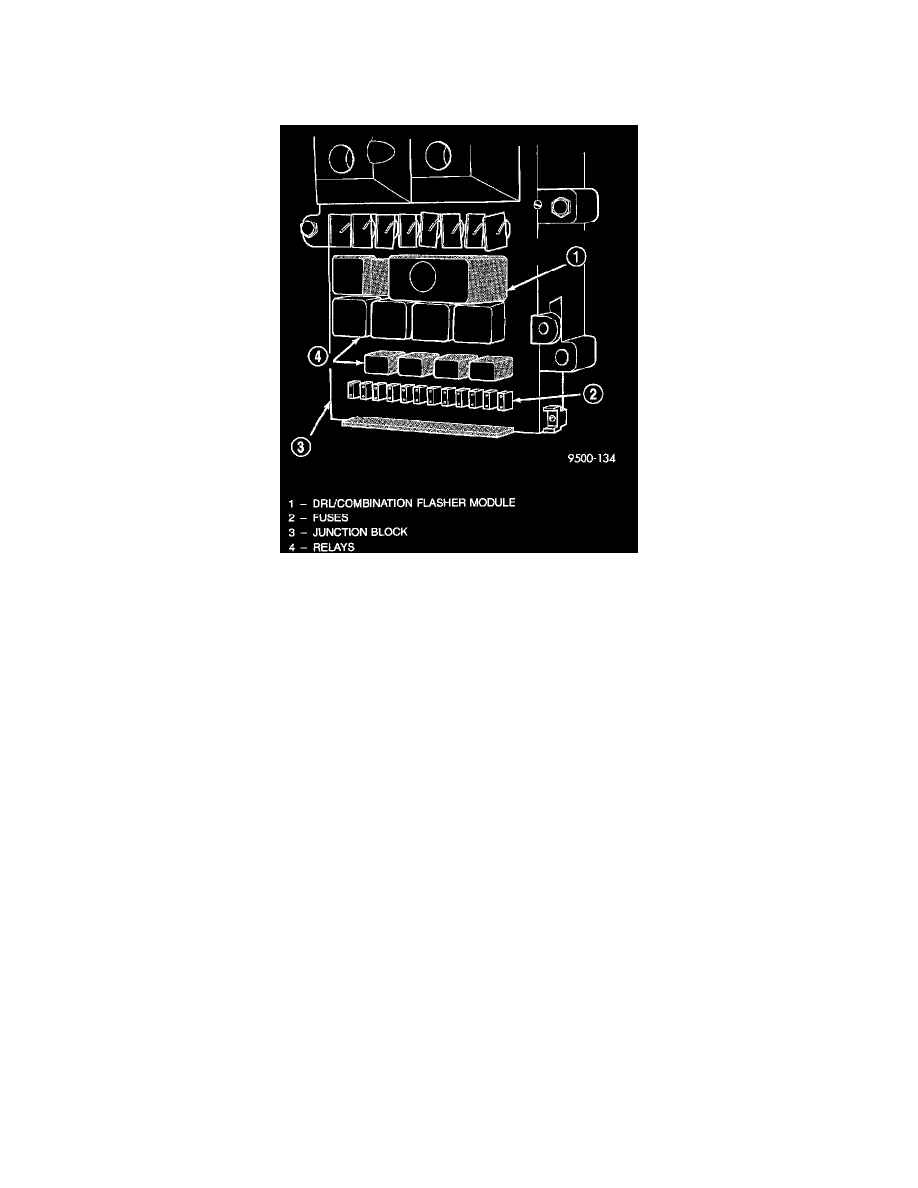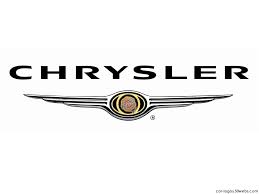Town & Country Van AWD V6-230 3.8L VIN L SMFI (1998)

Hazard Warning Flasher: Description and Operation
SYSTEM OPERATION
Combination Flasher
Without Daytime Running Lamp Module
Combination Flasher Location
The Turn Signal/Hazard Warning Flasher is a module providing turn signal, hazard warning functions and has been designed with internal
relays to take advantage of low current switching requirements in the vehicle. It is plugged into the Junction Block at position 4 where all
wiring associated with its operation is terminated. The Junction Block is adjacent to and left of the steering column of the vehicle.
To gain access to the device, remove the lower steering column cover and knee blocker.
The combination flasher may be operated in its hazard warning mode either with or without the ignition circuit being active. However, in order
to operate in the turn signal mode, the ignition circuit must be completed to the module.
While the combination flasher is idle, there is no current drawn through the module. The device does not become active until a signal ground
circuit is supplied to either of the turn signal inputs or the hazard warning input.
Typical flash rate for the flasher is 90 flashes per minute. When a lamp is burnt out for a given side of the vehicle or a wire is open to a lamp,
the flash rate will increase to 180 flashes per minute when in the turn signal mode. When in the hazard warning signal mode the flash rate
remains at 90 flashes per minute.
Turn signal inputs that actuate the flasher are low current grounds, each drawing a maximum of 300 mA and are provided to the flasher
through the Junction Block from the multi-function switch that is mounted to the steering column. The hazard warning signal input is a low
current ground drawing a maximum of 600 mA through the multi-function switch.
With Daytime Running Lamp Module
